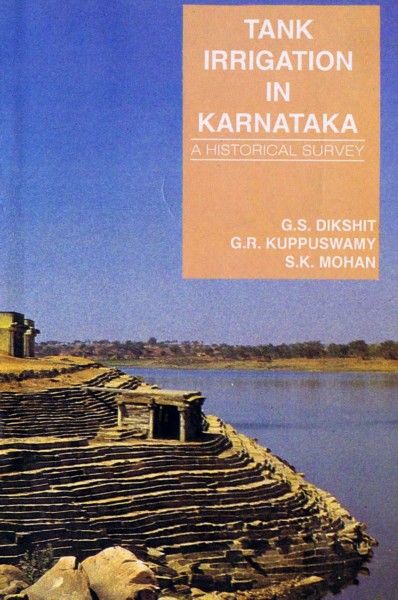/topics/rural-water
Rural Water
NIRD Annual Mela, NIRD RTP, February 25-28, 2012, Hyderabad
Posted on 24 Feb, 2012 09:41 PMOrganizer: National Institute Of Rural Development (NIRD)
Venue: National Institute Of Rural Development
Rajendra Nagar, Hyderabad 500030

Description:
Keeping in line with the tradition of the NIRD in organizing Annual Melas, the Rural Technology Park (RTP), NIRD is organizing a “Rural Technology Mela” for four days from February 25 to 28, 2012. A large number of rural technologies, products developed by various technology developers will be displayed in the Mela. There will be about 200 stalls for displaying various rural technologies and rural products from all over the country. It is expected that a large number of technology developers, technology users, technology institutions, Universities, scientific and research organizations, Public Sector Undertakings, Departments, Self Help Groups (SHGs) from states, namely, Assam, Andhra Pradesh, Delhi, Gujarat, Karnataka, Kerala, Maharashtra, Orissa, Chhattisgarh, Jharkhand Tamil Nadu, Uttar Pradesh, West Bengal and many other parts of the country are expected to participate in the Mela.
New water policy more contentious; least helpful in tackling existing issues
Posted on 22 Feb, 2012 12:34 PMAuthor : Dr. Arvind Kumar
IMaCS invites applications for Consultant – Monitoring and Evaluation, Delhi - Apply by February 24. 2012
Posted on 22 Feb, 2012 09:03 AMContent courtesy: DevNetJobsIndia

IMaCS has been engaged by an UN Agency to provide Technical financial and human resource support to various programmes and operation.
How valuable are environmental health interventions? - Evaluation of water and sanitation programmes in India - Paper published in the Bulletin of the World Health Organisation
Posted on 21 Feb, 2012 06:11 PMThe paper informs that a number of epidemiological studies on the benefits of water and sanitation interventions have shown that diarrhoea can be reduced by 30–50%.
Rural water access: Governance and contestation in a semi-arid watershed in Udaipur, Rajasthan: A paper in EPW
Posted on 21 Feb, 2012 05:19 PMStudy area
This study is carried out in micro-watershed No.19, which comprises six villages in Jhadol tehsil of Udaipur district in Rajasthan. A minor irrigation project completed in 1980 serves these six villages
Rainfall, storage levels in reservoir and groundwater use
UNICEF invites applications for WASH Specialist, Patna - Apply February 10, 2012
Posted on 10 Feb, 2012 12:38 AMContent courtesy: DevNetJobsIndia

Description:
WASH Specialist (This vacancy is for Indian nationals only)
Water conservation, sustainable agriculture, challenges for rural development in Maharashtra and possible solutions - Talk by Popatrao Pawar, Sarpanch, Hivre-Bazar
Posted on 09 Feb, 2012 04:49 PMShri Popatrao Pawar is an inspiring promoter of the 'Ideal Villages Movement' on "Integrated Agriculture and Rural Development for Tomorrow's Maharashtra" on the occasion of the inauguration of Observer Research Foundation's Maharashtra@50 Study Centre on 24th June 2010.
Nutrient-based fertiliser subsidy: Will farmers adopt agricultural best management practices? An article in EPW
Posted on 06 Feb, 2012 11:58 AMIt offers prospective benefits from the agro-environmental management point of view.
Saving some last remaining free flowing rivers
Posted on 24 Jan, 2012 06:38 AMGuest post by: Parineeta Dandekar
Tank irrigation in Karnataka: A historical survey
Posted on 24 Jan, 2012 06:12 AMThe book covers entire eras from the ancient to the current period. It also gives information about the structural, financial and institutional aspects of tank construction and management.
The full book is available for download on the India Water Portal. Please right-click on the cover page image of the book, and select 'Save link as', to download the full book.






